
Ninety years ago, a group of farmers came together to form a new organization that would record the pedigrees of a relatively new breed of hog, developed in the first part of the 20th century. The new hogs were red, with white heads, white ears and white legs. In fact, the hogs were marked remarkably like Hereford cattle, which had long been an established fixture in United States cattle breeding. They called these colorful new swine Hereford hogs.
AN ACHIEVABLE DREAM
The story of Hereford hogs begins in La Plata, Missouri, some say as early as 1902. At that time, a man named Rutherford Ulysses Webber decided to develop a breed of hog that would look like Hereford cattle. He used Durac hogs, Chester hogs and Ohio Improved Chesters to achieve his breeding goals, and it’s believed he even began his own registry. Despite his efforts, his strain of hogs ultimately didn’t catch on, and it’s understood that none of today’s Hereford hogs descend from those early Webber hogs.
Meanwhile, 175 miles away in Norway, Iowa, John C. Schulte was also dreaming of developing a Hereford hog. As the story goes, Schulte loved polled Hereford cattle and wanted to see if he could achieve the same color and markings in a new breed of swine.
Schulte began breeding in 1917 with a goal of developing a hog with Hereford coloring, and he used Poland Chinas and Durocs. He chose the Durocs for their color and their reputation of producing large litters, but he also liked the quality of the Poland Chinas and prized those for their white markings.
This story is from the {{IssueName}} edition of {{MagazineName}}.
Start your 7-day Magzter GOLD free trial to access thousands of curated premium stories, and 9,000+ magazines and newspapers.
Already a subscriber ? Sign In
This story is from the {{IssueName}} edition of {{MagazineName}}.
Start your 7-day Magzter GOLD free trial to access thousands of curated premium stories, and 9,000+ magazines and newspapers.
Already a subscriber? Sign In
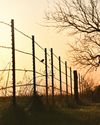
The RISE of Opportunist WEEDS
Be prepared to see increasing changes in weeds we fight, such as poison hemlock and poison ivy, and in the crops we grow.
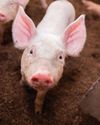
LIVESTOCK Health
Prepare yourself for how to spot symptoms of illness in your farm animals so that you can get them help before it's too late.

CUT FLOWER Farming
If you're considering growing flowers for sale, brush up on these five key things to know before diving in.
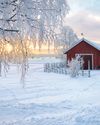
WINTER Survival
Keep your land, animals and yourself in good shape this winter with this helpful advice.
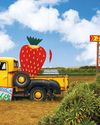
COVERAGE CONCERNS
Avoid common insurance mistakes for rural and hobby farm businesses.
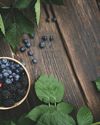
FARMER'S GUIDE Berries
Set the stage for tasty strawberries, blueberries and brambles with these soil-boosting garden tips.
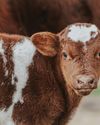
Preconditioning CALVES
Follow our step-by-step guide to get more money for your calves.
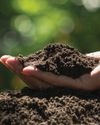
Soil Conservation
Often, outside of having a specific problem that needs to be addressed, soil conservation isn't something every farmer readily thinks about. Yet conserving the soil should be at or near the top of every farmer owner or manager's list of concerns because absent the prevention of soil erosion, we have the opportunity for another dust bowl.
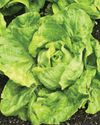
Year-Round Lettuce & Salad Mixes
It's easy to think of salad greens as just a spring- or fall-garden crop, but it's possible to enjoy freshly harvested lettuces, mustards and more from your own garden year-round.
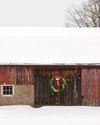
Barn Improvements
Days are never long enough for a farmer. From dawn to well into the night, tasks arise that often require immediate action. Having to search for tools or equipment is an enormous time waster and incredibly frustrating when you can't find what you need, especially when you know you have it.